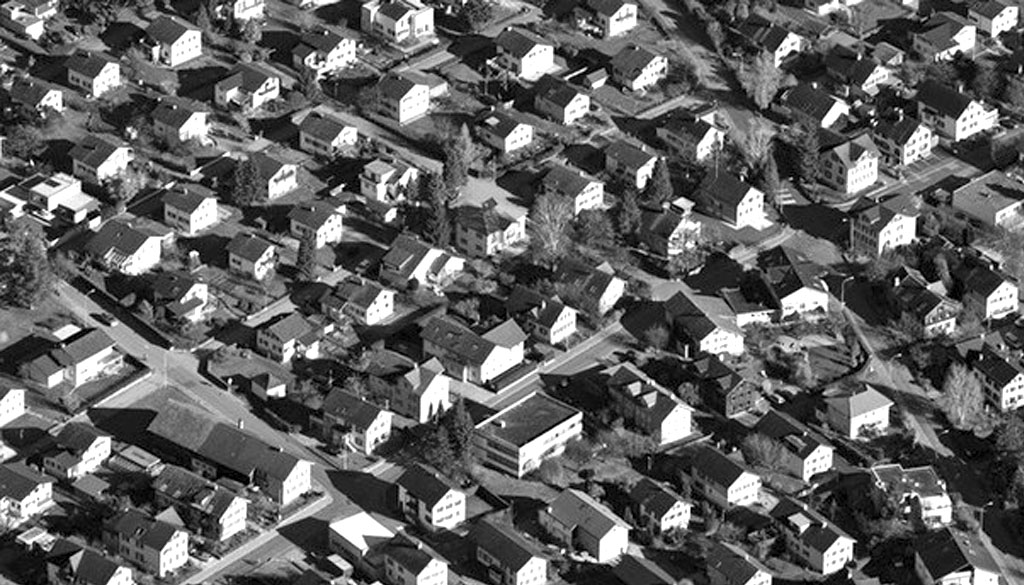20-01-05 // MIDDLE CLASS URBANISM – INTERVIEW WITH THOMAS SIEVERTS

Single-family detached homes in Switzerland
Bernd Upmeyer spoke on behalf of MONU with the architect and urban planner Thomas Sieverts. His publications include ‘Zwischenstadt’ in English under the title ‘Cities without Cities’ and numerous articles and essays. He taught at the HdK in Berlin, at Harvard University and the TU in Darmstadt. From 1989 to 1994 he was the director of the Internationale Bauaustellung Emscher Park.
Bernd Upmeyer: The disappearing of the middle-class is predominantly known as an American phenomenon. To what extent is this also relevant in Europe?
Thomas Sieverts: I am not sure that this is a serious problem in Europe as yet. However many European cities complain about it. Hamburg for example is concerned about the fact that it looses 5000 solid middle-class inhabitants to its suburbs each year and in return gets either unstable lower class households or extremely rich people. These developments can become a problem even for prospering cities like Hamburg. I don’t believe however that this is a common problem as of yet. An important question in this context of course is whether the financial burden sharing between cities, municipalities or neighborhoods will be eliminated. As long as this is not the case we won’t have the doughnut-model in Europe, since inner cities are continually stabilized with large amounts of subsidies. I assume that this will continue to happen also in the future. It will become more difficult however since a lot of the retailers are leaving city centers while the old concepts still rely on the centrality of retail. This will change on the long run, since the inner cities are slowly realizing that they are loosing out with these policies and will start to become ’Zwischenstädte’: If they can’t avoid the big shopping malls then they will start to develop them in the context of their inner-cities. And if people want single-family homes at every price, they will transform areas designated for multi-family housing into single-family home areas. An extreme social polarization between neighborhoods will remain the exception in Europe, unless the neo-conservatives, who want to abolish social policies and redistribution, become strong. At the moment even the most conservative parties in Germany are still relatively ‘social-democratic’. A really neo-conservative party – thank god – does not exist here or in Europe for that matter.
BU: In Europe there seems to be a displacement rather than a disappearing of the middle-class. For example the disappearing of the middle class from the city centers. Do cities need the middle-class?
TS: Yes. If we don’t want to preserve the European City just as a tourist destination then we need a strong middle-class in the cities. Without them European cities will become mere tourist ghettos or ghettos of the super wealthy – this is already the case in Paris to some extent. The normal Parisian can’t afford living within the periphery any more. In some cases this is also true in Germany—in Munich, for instance, and to some extent in Hamburg. In cities like Berlin and Cologne these phenomena are not yet so pronounced. However, should there be a strong neo-conservative force in this country that will no longer support redistribution, then social segregation will happen on a large scale in Germany too. If the central cities are not longer supported by a confident middle-class, they will deteriorate socially and culturally…
…the complete interview was published in MONU #2 on the topic of Middle Class Urbanism on January 20, 2005.
Title: Middle Class Urbanism
Project: Interview with Thomas Sieverts
Date: January 2005
Type: Commissioned interview
Topic: Middle Class Urbanism
Organizer: MONU
Status: Published
Publications: MONU #2, P.24-29
Interviewer: Bernd Upmeyer